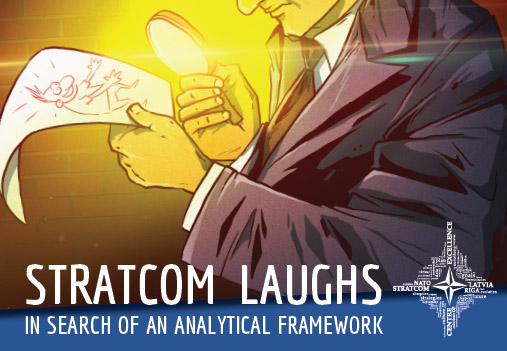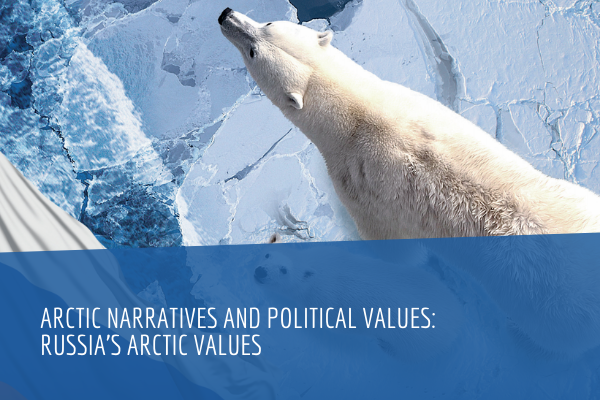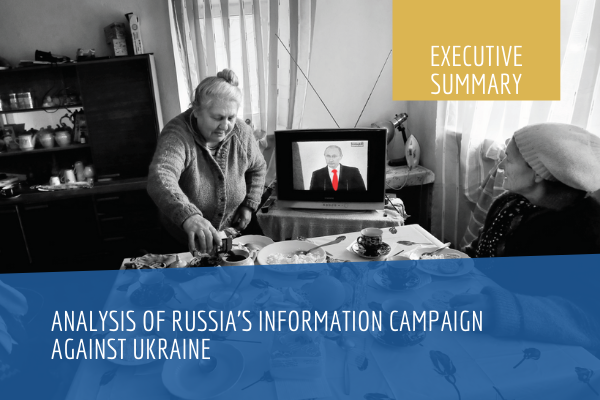The study “StratCom laughs. In search of an analytical framework“ is a multidisciplinary effort to design an analytical framework for analysing humour in scenarios where researchers and practitioners find themselves working through large data collections where humour has been used as a potent tool in the construction of messages designed for strategic communication. The research was conducted in four stages.
The first stage approaches the concept of humour from the perspectives of cognitive, communication, political science and psychology. The relevant components of humour, namely shared knowledge, target audience, perception, function and message delivery have been factored in.
The second stage includes three distinct case studies:
- the discrediting of Western political leaders in late-night shows broadcast by the Central Russian TV as a massive humour-driven propaganda tool aimed at national and international target audiences;
- the KVN (Klub Vesyeliykh i Nakhodchivikh) TV show and competition broadcast in Russia since the early 1970s; and
- the application of humour as a tool of counter-propaganda by the Ukrainian media.
The third stage of the research is based on a review of the case studies from the perspective of the proposed analytical framework by identifying conclusions and proposing recommendations drawn from the five identified components of humour. This section also serves the purpose of an executive summary.
The fourth stage proposes a tool kit – a resource guide for utilising humour as an effective tool in strategic communication.
The outcome of the study can be used by different audiences. For the research community, the study offers an innovative multidisciplinary analytical framework for conducting theoretical research. Practitioners on the other hand, will find the case studies useful in their daily affairs owing to an extensive collection of facts, examples and practices. The section comprising conclusions, recommendations and the tool kit would be of value to multiple audiences ranging from researchers and practitioners to other members of society with a more general interest in humour.
Six researchers have worked on this project over a span of six months, attempting to unfold the multiple faces and roles of humour in different life situations, including strategic communication. Though it is impossible to embrace every aspect of humour in a single study, the multidisciplinary focus used here paves the way for further studies in the compelling world of humour.






